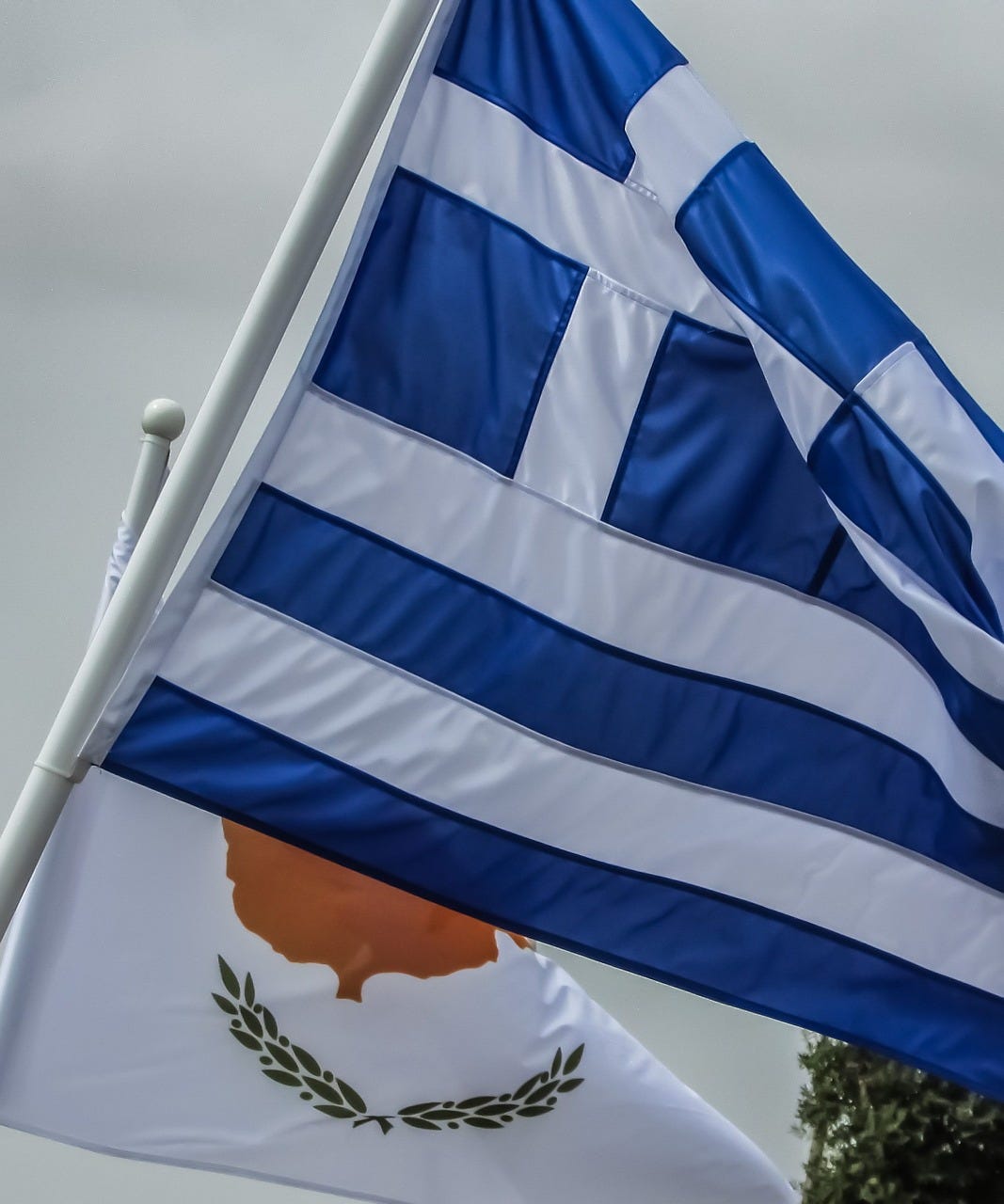Today, March 25, is Greek Independence Day. It’s widely celebrated by Greek communities around the world, but especially so in Cyprus where it is a public (bank) holiday. Cyprus is closely tied by both culture and language to Greece. At one point, in the late sixties and early seventies there was a strong movement for unification with Greece. Enosis (Ένωσις) is the movement of various Greek communities around the world for incorporation into the Greek state. Prior to Cyprus independence in 1960, Greek Cypriots campaigned for Enosis, while Turkish Cypriots opposed it with taksim, the partitioning of the island between Greek and Turkish Cypriots. Needless to say, independence from Britain happened with neither enosis nor taksim.
The continuing desire for enosis led to a coup d’etat on 15th July 1974, planned and supported by the Greek military junta, executed by the Cyprus National Guard, with the stated desire and intent to implement enosis. It led to outbreaks of inter-communal violence in the form of Turkish Cypriot massacres and clashes between pro coup and anti coup Greek Cypriots. As a result, Turkey invaded Cyprus from the north on 20th July 1974 and by August 1974 occupied 36% of the island. To this date the Turkish occupation is considered illegal under international law, but there does exist a cold peace between north and south Cyprus with relatively free movement between the two. Around 150,000 Greek Cypriots, about 80% of the population of the north, were displaced as they fled to the south. About 60,000 Turkish Cypriots were displaced from the south to the north. To this day, almost 50 years later, there are many ghost villages in the north and south which have fallen into ruin after their inhabitants fled. There are ongoing intermittent peace talks in an attempt to resolve the dispute.
In Cyprus there are public events and festivities to commemorate and celebrate Greek Independence. The Greek flag is commonly flown throughout Cyprus in public places and at every Greek Orthodox Church. Greek Independence Day events include parades, church services and other events attended by Cypriot ministers and heads of government who all give speeches.
While Cyprus is definitely not Greece, in many ways, it nonetheless has close economic, cultural, educational and military ties with Greece and is influenced by Greek culture and events. Many Cypriots will attend university in Greece before returning to Cyprus. Cyprus Independence Day will be celebrated on October 1st 2024.






